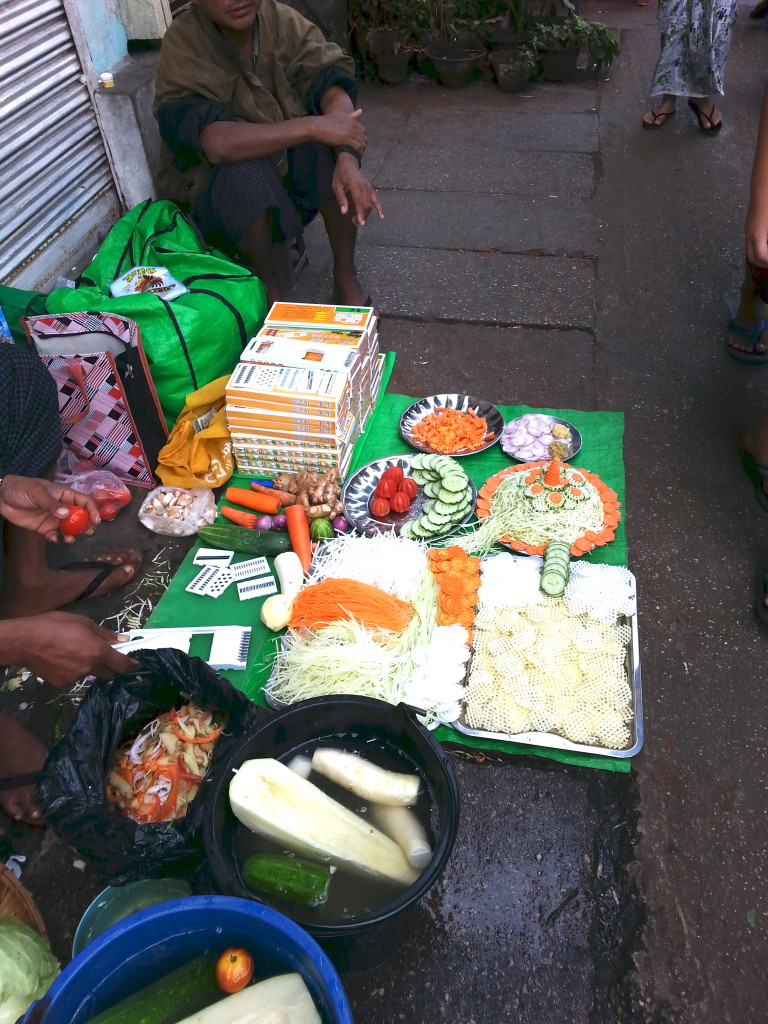December 31, 2014
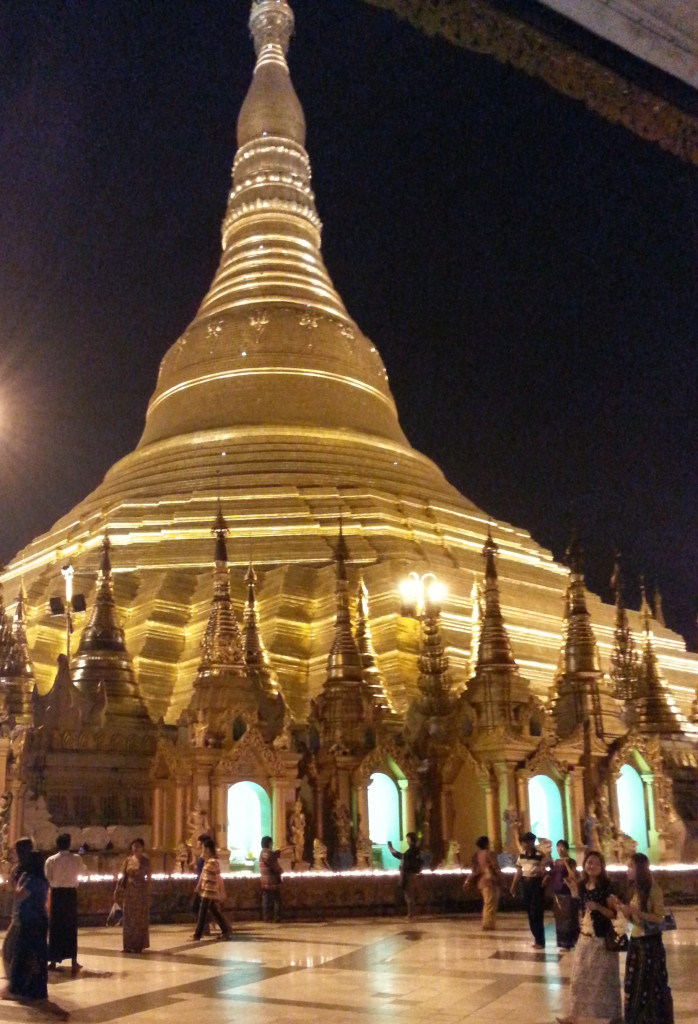
Even if you’ve visited a thousand pagodas, Shwedagon Pagoda in Yangon is worth the visit. With a gold gilded roof 400 feet tall and a spire an additional 400 feet, the shock of seeing so much gold is overwhelming. Gold is mined in northern Myanmar, where there is an age-old struggle between the government and the local tribes, and where the Chinese are changing the landscape, forever.
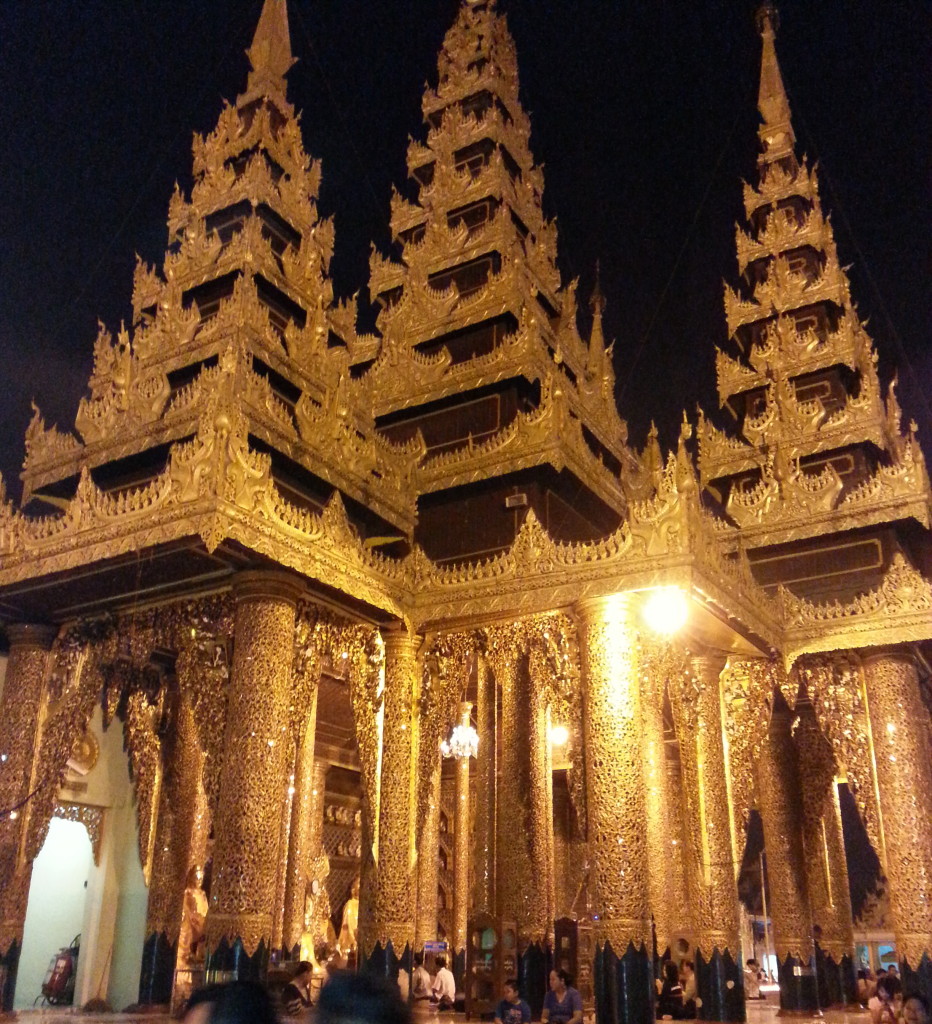
Pagodas? Stupas? What’s the difference? Pagodas are tiered towers created as places of mediation. Stupas, or mounded heaps, are sacred sites for holy relics and burial grounds. Shwedagon has both, pagodas for prayer and stupas as a final resting place for the ashes of Buddhist monks. With all the guerrilla warfare and rush for natural resources in Myanmar, I believe religion will be the key to lasting change.
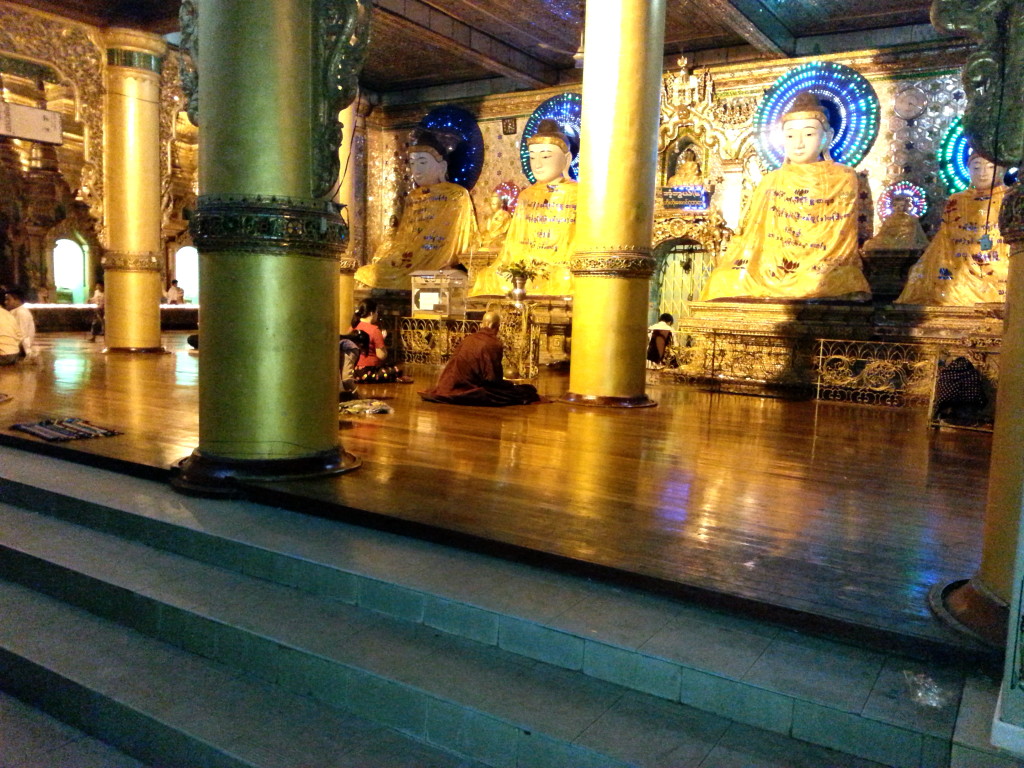
In India, only Majulie had a strong Hindu monk presence. In Myanmar, Buddhist monks are everywhere.
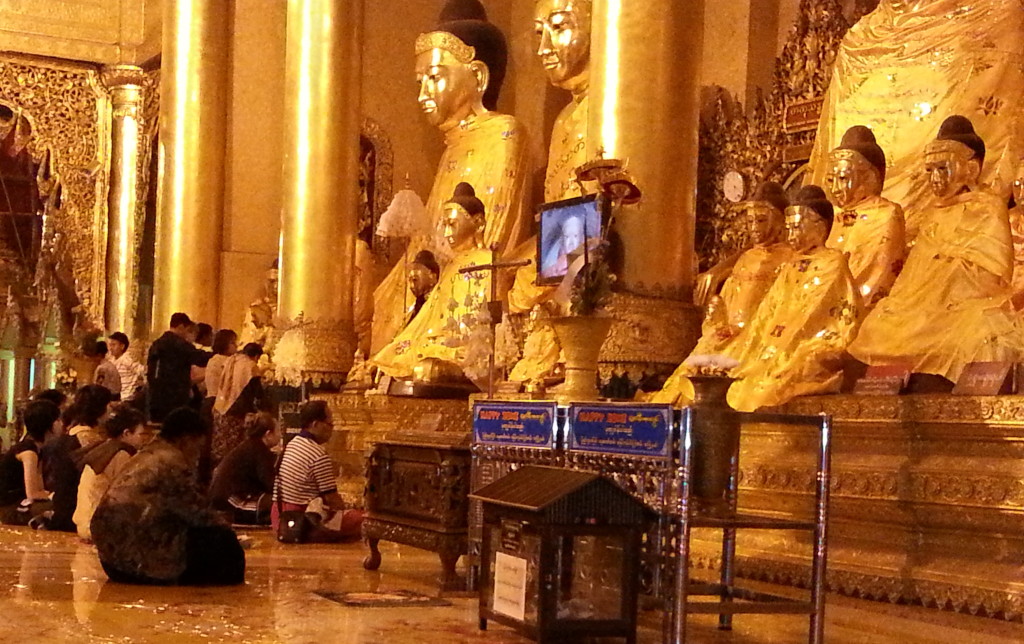
It is truly humbling to see how intently these people pray. They seem to find solace in it. When speaking with them, their philosophy is to: take only what is needed. That’s honorable, but it seems to have thwarted their economic growth and suppressed their standard of living.
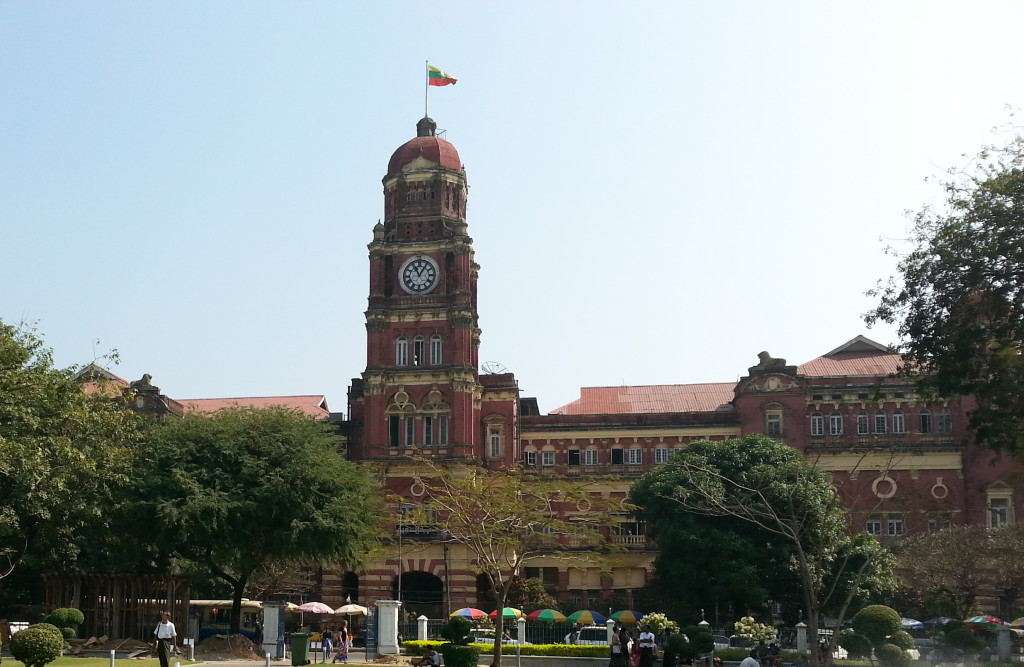
Like India, Myanmar (formerly known as Burma) was a part of the British Empire. Throughout Yangon there are relics of what once was.
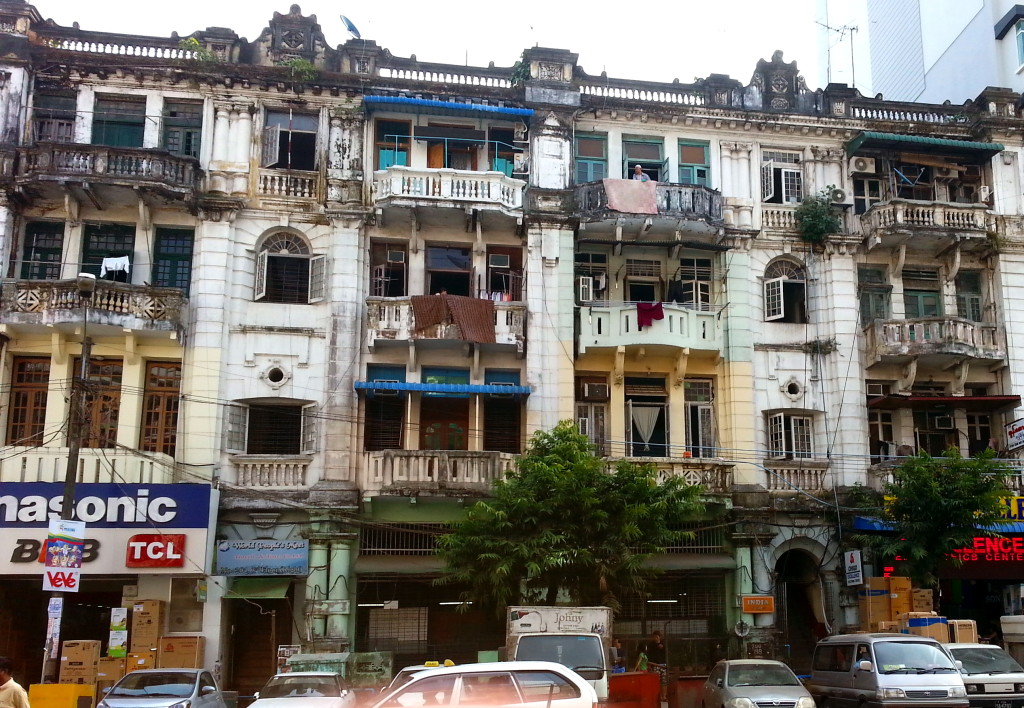
Some have called Yangon an ugly city at first glance; albeit one with unlimited potential.
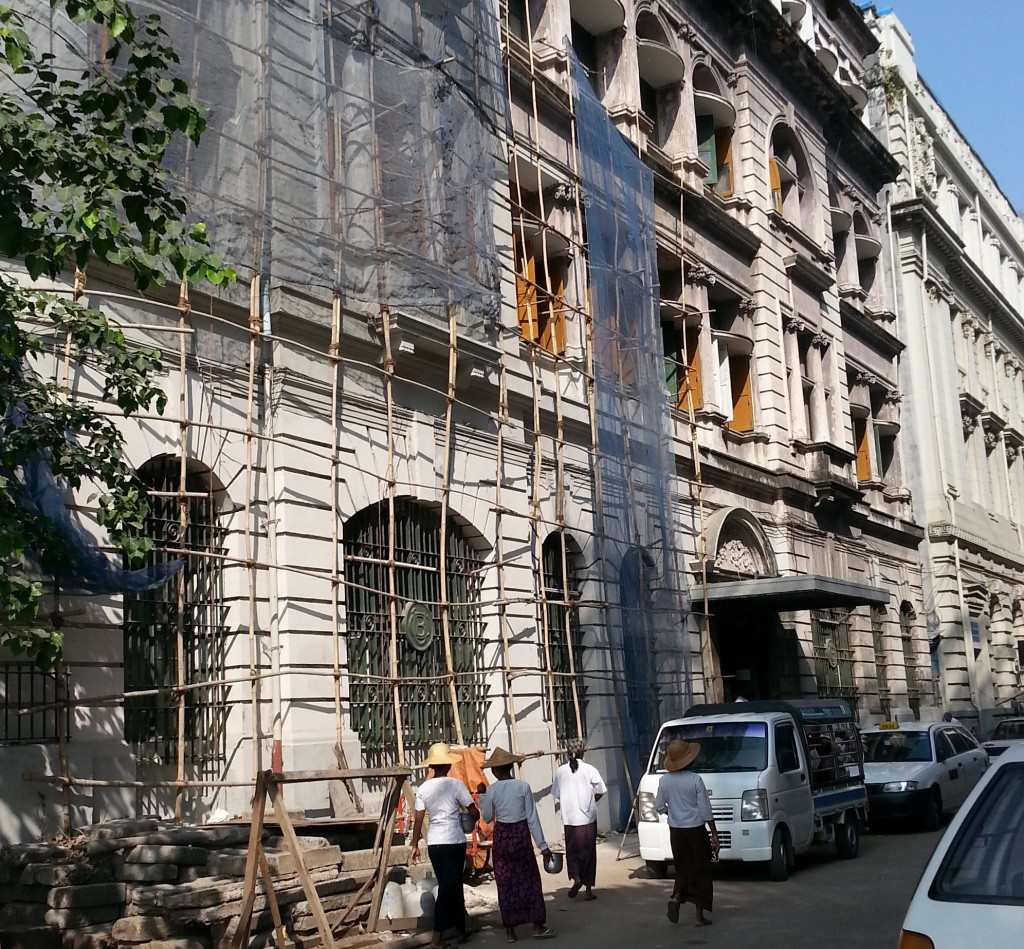
Only recently has there been significant progress in reaching a peace accord between the government and the twenty six tribes who want to govern their land separately. This political instability has resulted in Myanmar being one of the last unexploited frontiers to bid on.
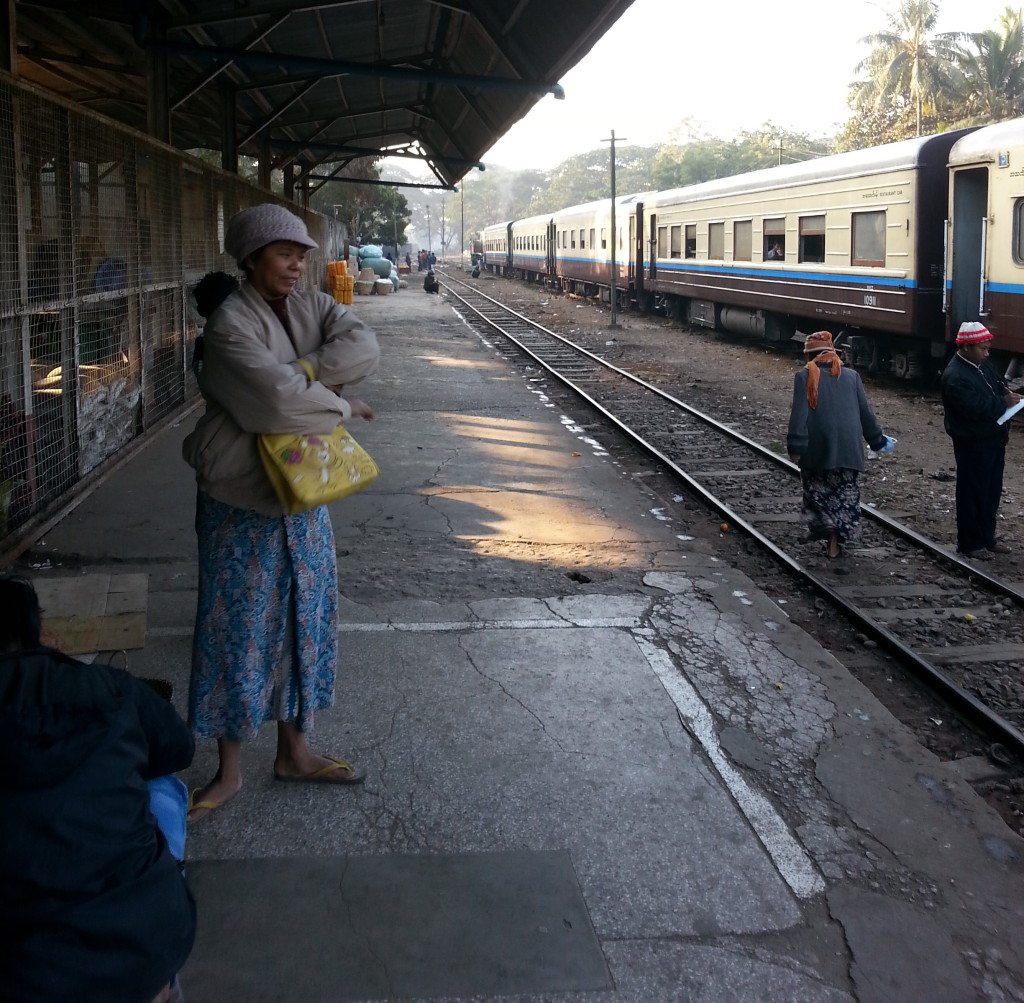
The most frustrating thing for me, as a tourist in Myanmar, was the undependable transportation system. Airlines were either late, or completely canceled with only a moment’s notice. Trains were so old, that you couldn’t blame them when they broke down. And the river system is dependent on nature, getting stuck on a sandbar is the norm. So leave a buffer in your travel time and travel with a lot of cash. You may want to check out Go-Myanmar.com. They are have great insight on air and train travel. Recently, ATMs have arrived in Myanmar, but only in large cities. Also, the internet and cell phone service is costly and unreliable. Consequently, blatant, bootlegged communication services have sprung up. So enjoy life without a cloud connection.
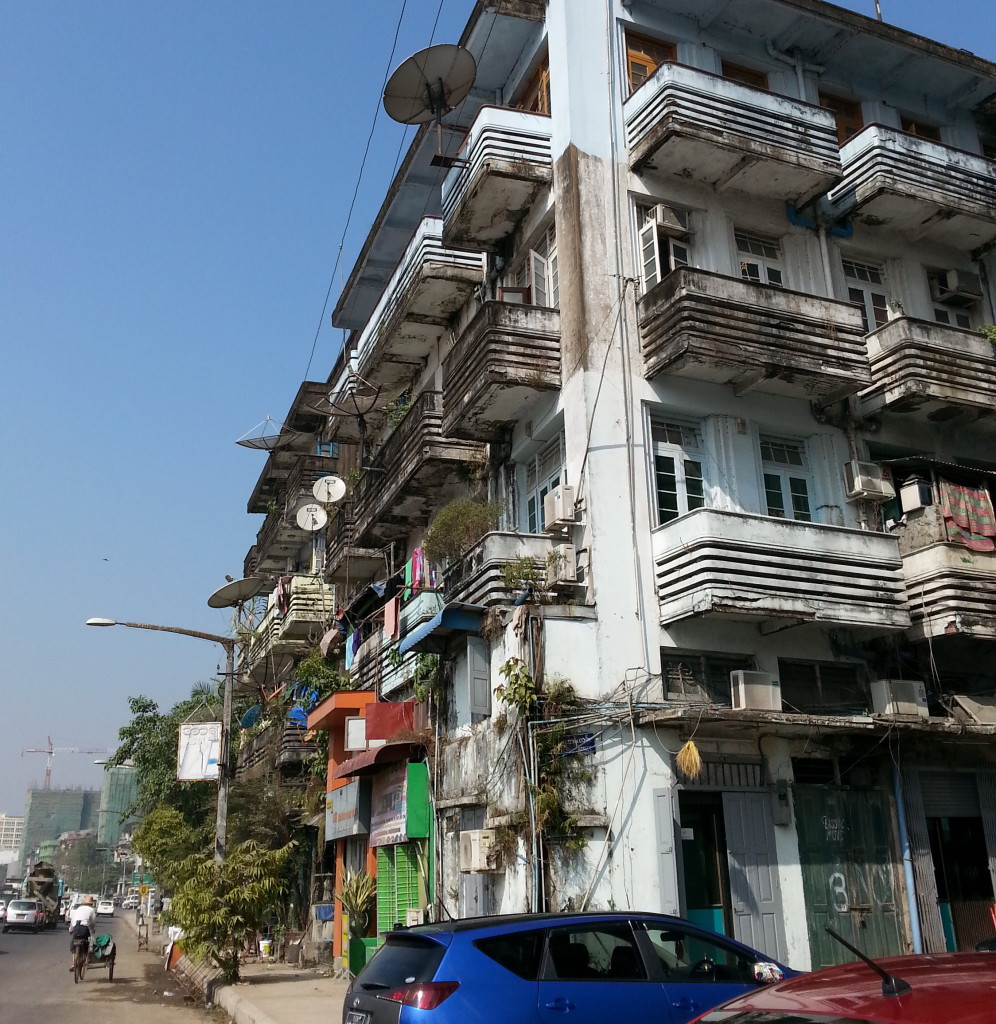
But the Burmese passively accept what I would consider inconveniences. They live in the present, with rich traditions from the past and after years of political struggle are wary of the future.
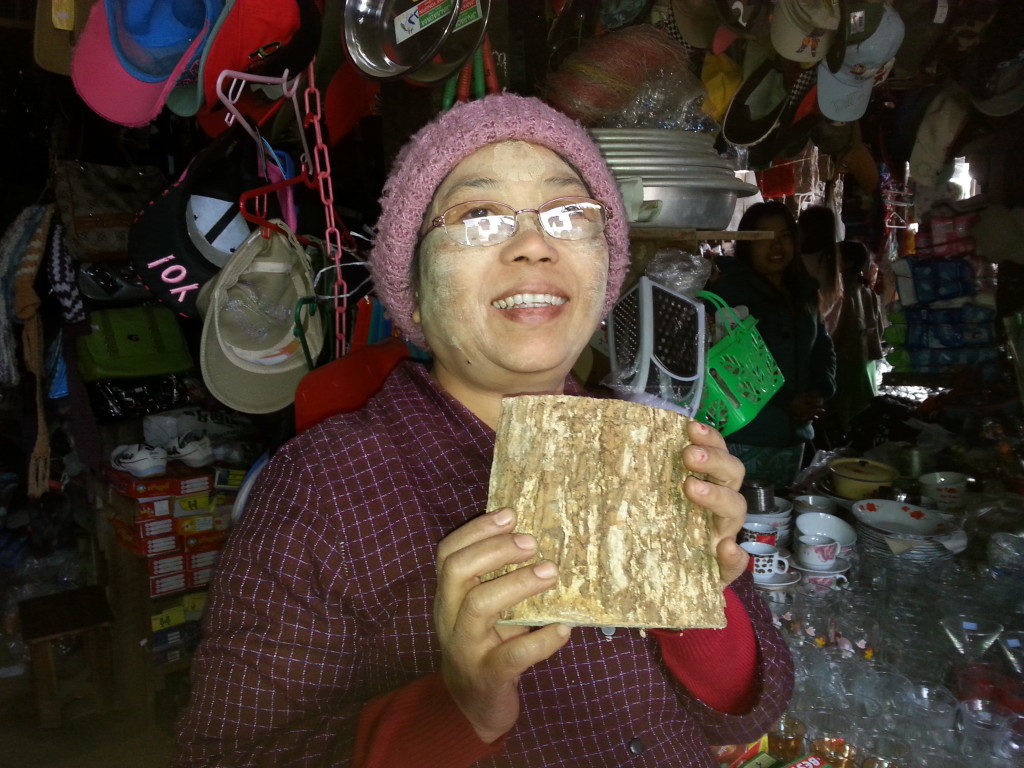
They are a people that carry-on.
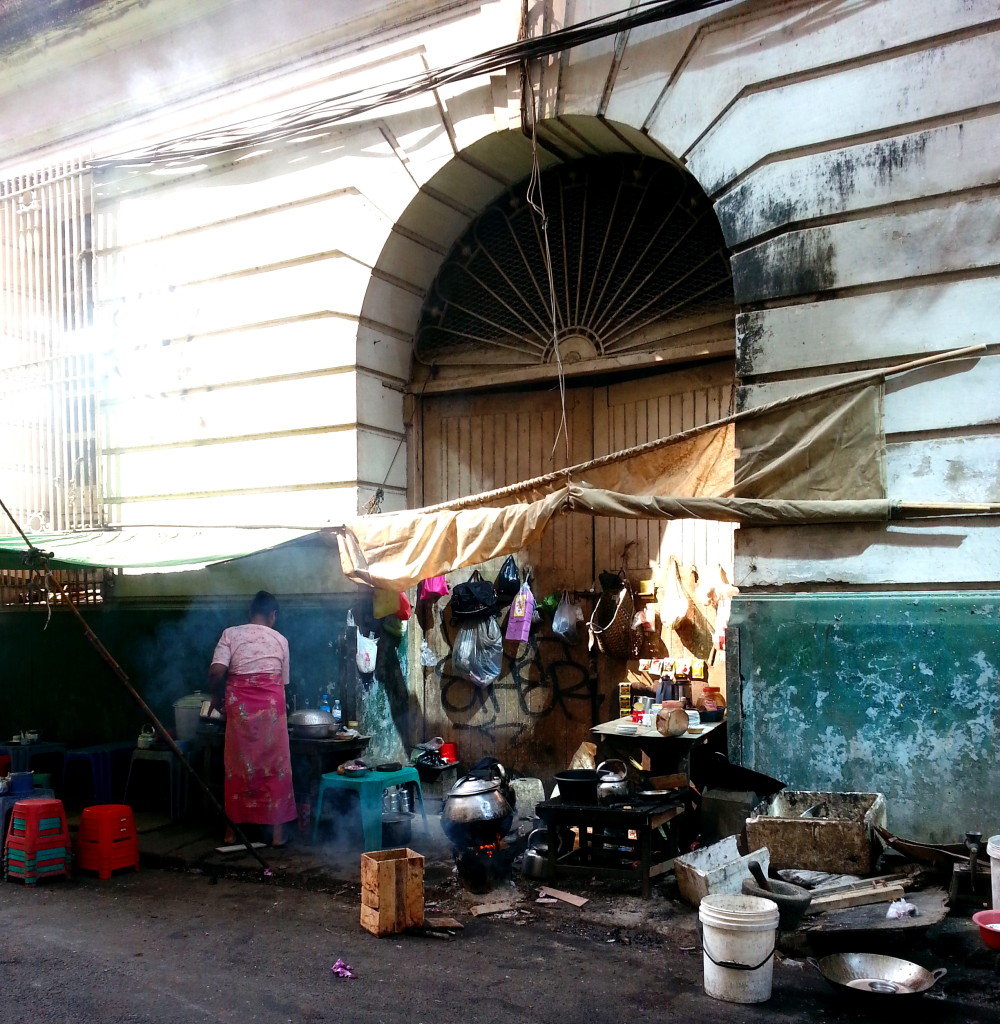
- They don’t complain. If they don’t have enough money to rent space for a kitchen, they just throw a lean-to on the sidewalk.
-
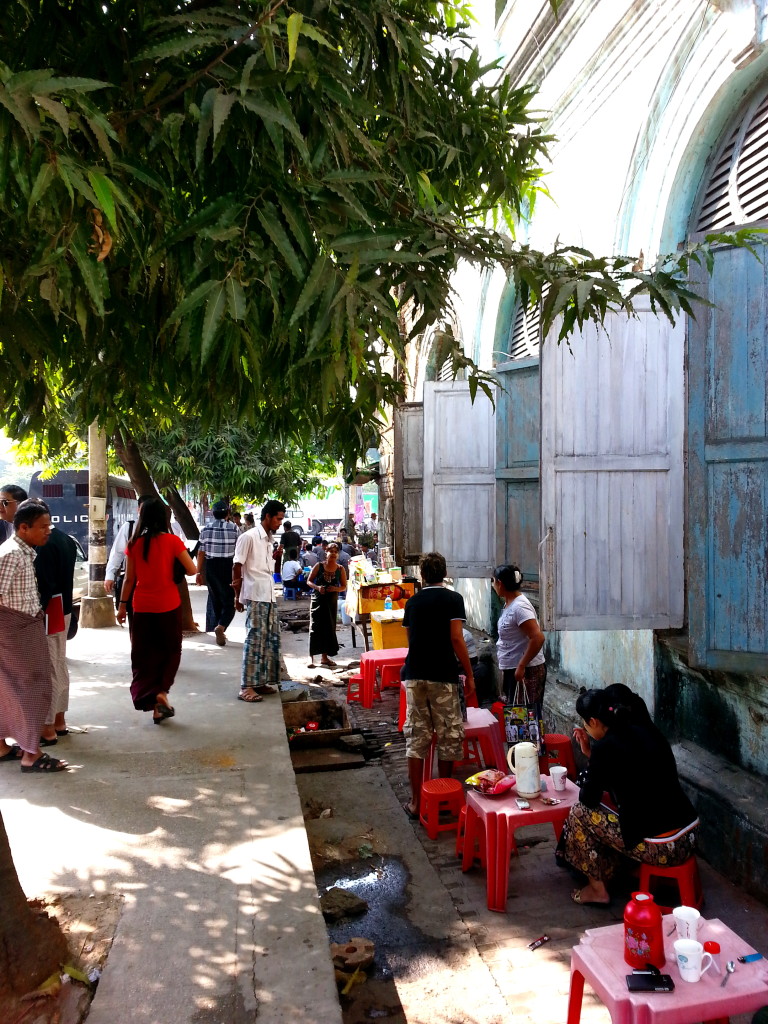
Typical sidewalk cafe. And the people come.
-
- Beautiful display of “fast food.”
- So why visit Myanmar? It is a mystical land devoted to tradition, with an unexplored wilderness, bursting with natural resources. It seems to be the simple life we all long for, until we get it.
-
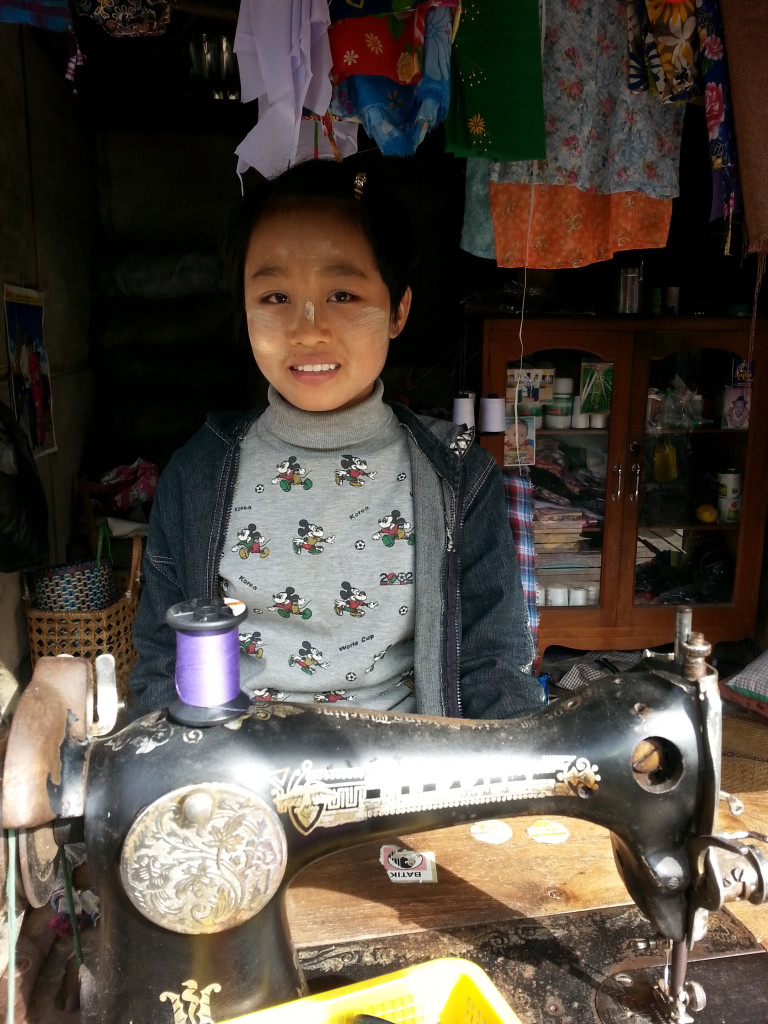
Seamstress
I really appreciate you visiting my web page. It means a lot to me. In the comments box, I’d like to hear what you think about my posts – tell similar stories – share other blog forums.
Error: Contact form not found.
